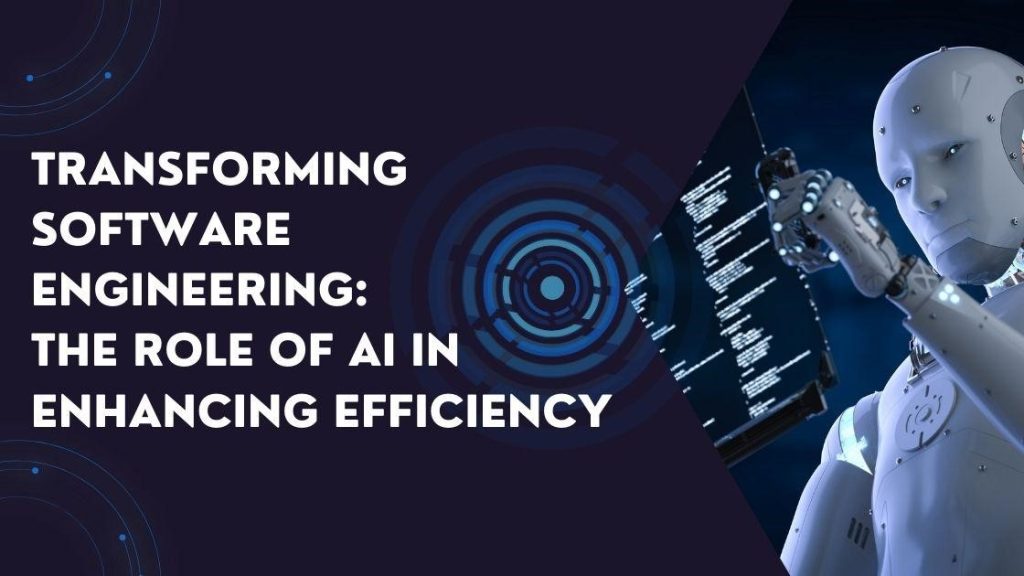In today’s digital world, Artificial Intelligence (AI) has been a transformative force across multiple industries, and its impact on software engineering is no exception. Shantanu Kumar, an industry expert, explores how AI-driven innovations are reshaping traditional software development practices in his latest work. This article delves into the cutting-edge AI applications that are streamlining processes, optimizing performance, and elevating software quality.
AI in Planning: Smarter Project Management
AI has transformed project planning in software development by analyzing vast datasets from previous projects, helping managers make better decisions on timelines, resource allocation, and risk management. Machine learning models identify patterns and potential risks, while deep learning models, like RNNs, predict timelines with greater accuracy. By considering factors such as task duration, team availability, and dependencies, AI enables more realistic project timeframes, resulting in smoother workflows and reducing the chances of delays.
Coding with AI: Enhanced Productivity
AI has significantly transformed coding, especially through automated code completion and generation. Leveraging models like transformers, AI predicts and suggests code snippets based on context, enhancing productivity and reducing errors. It also generates code templates from vast codebases, enabling developers to create frameworks quickly and focus on innovation. AI further optimizes code by analyzing behavior and performance metrics, suggesting improvements to boost scalability and efficiency while reducing bottlenecks. AI-driven refactoring tools help maintain cleaner, modular codebases, making them easier to manage and scale, allowing developers to focus on higher-level problem-solving.
Testing and Debugging: AI Ensuring Software Quality
AI-driven innovations have revolutionized testing by automating test case generation and improving anomaly detection. AI can create diverse test cases that cover various inputs and potential failure points, ensuring thorough testing and reducing the risk of missed errors. Anomaly detection, using unsupervised learning, identifies unexpected system behaviors, allowing developers to address issues early in the development process. Additionally, AI-powered static code analysis tools analyze historical data to detect vulnerabilities, enhancing code quality before it reaches production. These advancements streamline testing, save resources, and boost the overall efficiency of software development.
AI in Deployment: Streamlining Processes
AI is transforming the deployment phase of software development by introducing intelligent solutions that streamline and enhance the process. One key innovation is AI-driven rollout planning, where machine learning models analyze historical data and user behavior to optimize deployment strategies, reducing the risks of failures and downtime. In continuous integration/continuous deployment (CI/CD) pipelines, AI automates build triggers, adapts to code changes, and predicts potential failures, minimizing manual intervention and ensuring reliable deployments. Additionally, AI-powered self-healing processes continuously monitor application health, automatically detecting and recovering from failures, significantly improving system resilience and reliability.
Overcoming Challenges: The Path Forward
While the potential of AI in software engineering is undeniable, there are challenges to its widespread adoption. Integration with legacy systems remains a significant hurdle, as does the complexity AI introduces into the development process. Ensuring compatibility between AI components and existing infrastructure requires careful design and standardization efforts.
Ethical considerations also play a crucial role in the future of AI-driven software engineering. Concerns around data privacy and algorithmic biases must be addressed through responsible AI practices. Developing ethical frameworks and ensuring transparency in AI decision-making are essential steps to building trust and accountability in AI-driven systems.
Looking Ahead: AI’s Future in Software Development
As AI technologies advance, the potential for innovation in software engineering expands rapidly. Explainable AI (XAI) promotes greater transparency and accountability, making it easier for developers to trust and adopt AI tools. Federated learning, another promising avenue, allows collaborative AI model training without sharing sensitive data, enhancing privacy and AI capabilities. Collaborative human-AI development holds significant potential, as AI systems designed to complement human expertise can create more adaptive and personalized tools, ultimately boosting productivity and driving innovation in software development.
In conclusion, AI continues to redefine the landscape of software engineering, offering innovative solutions that enhance productivity, streamline processes, and improve software quality across various stages of development. From smarter project management and efficient coding to comprehensive testing and intelligent deployment, AI is proving indispensable in modern software engineering. However, challenges such as integration complexity and ethical concerns must be addressed to fully harness AI’s potential. As Shantanu Kumar emphasizes, the future lies in collaborative human-AI development, where adaptive and personalized AI tools will drive further innovation and efficiency in the industry.

